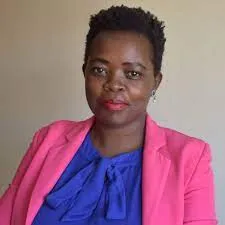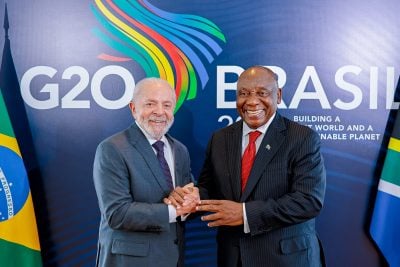This article was produced with the support of Shelter Afrique Development Bank
In their declaration dubbed “The Kigali Declaration”, the ministers acknowledged that urbanisation has been a significant driver of development and poverty reduction.
“Governments have the opportunity to respond to this key development challenge by promoting a new model of urban development that integrates all facets of sustainable development to promote equity, welfare, and shared prosperity,” say the ministers in the declaration.
The Kigali declaration was agreed upon at the end of the three-day deliberations of the ministers, government officials, private and the financial sector representations at the 43rd Annual General meeting of Shelter Afrique Development Bank (ShafDB) in Kigali, Rwanda.
It aims to unify our voices to achieve common goals and tackle shared challenges. It seeks to highlight to the global community the urgent need for coordinated action on climate change, emphasising its impact on Africa. It highlights to the global community the urgent need for coordinated action on climate change, emphasising its impact on Africa.
The Declaration underscores the importance of addressing Africa’s housing deficit, focusing on the materials and methods used for urban infrastructure development, which matters to the global community. The embodied carbon in construction materials must be a key consideration in combatting global warming.
“Addressing the complex challenge of urbanisation requires the concerted effort of member States, multilateral organisations, local governments, the private sector, and civil society, in alignment with the Sustainable Development Goals (SDGs),” reads the declaration.
“The time has come to mobilise the global community, focusing on all levels of human settlements—from small rural communities to metropolises—for social and economic growth.”
Supported by a well-prepared roadmap for “How to Finance and Deliver,” leveraging the professional expertise around Shelter Afrique Development Bank, the declaration proposes a metering system for progress and a networking platform for cooperation, knowledge sharing, and innovation. ▪
The African ministers through the declaration advocate for updating and transparently sharing data on real demand and deficits in both urban and rural areas.
“Sustainable development goals will be advanced through sustainable urbanisation with emphasis on decarbonising the built environment, rewarding green innovative solutions, and utilising certified carbon credit monetary conversion for green infrastructure development through concessional funding,” notes the declaration.
According to the declaration, financing is at the core of the housing sector achieving its set mandate, which is anchored on collaboration between various stakeholders throughout the housing value chain. Leveraging n these dynamics is essential for addressing the challenges and opportunities in providing affordable and sustainable housing for all.
With an estimated deficit of 52 million housing units, Africa requires at least $1.2 trillion investment to plug in the housing deficit in the region. This challenge is further exacerbated by the fact that Africa is considered the fastest urbanising region globally.
The Organisation for Economic Co-operation and Development (OECD) projects that the continent’s population is projected to double between now and 2050 and two-thirds of this growth will be absorbed by urban areas.
The C40 Cities and World Resources Institute indicates that accommodating Africa’s urban growth between now and 2050, along with current retrofitting needs, requires an estimated $20-25 billion investment in basic infrastructure and another $20 billion for housing.
“Considering the magnitude of Africa’s housing crisis, and the economic and employment multiplier effects of the housing industry, DFIs and other related multilateral institutions have a fundamental role to play in addressing the continent’s housing needs,” say the ministers in the declaration.
“The intervention of development partners should primarily focus on improving the housing conditions of low-income households, mobilising funding, promoting efficiency, and supporting innovative solutions to address the continent’s colossal housing shortage.”
The misters affirm that housing finance and urban development must henceforth be elevated to a top priority on national and international agendas, with adequate resources allocated to address the pressing needs of our communities.
“This is well aligned with Shelter Afrique’s core mandate in terms of attending to both the demand and supply sides of the housing value chain and also the institution’s thematic areas.,” they says adding that these initiatives are supported by advisory and project preparation facilities to enhance bankability and catalyse investments in the affordable housing and built environment industries.
On sustainable Financing, the misters recognise the imperative of establishing sustainable financing mechanisms, including increased public investment, innovative private sector engagement, and leveraging international development assistance, to ensure long-term funding stability for housing and urban development initiatives.
On policy Advocacy they commit to advocating for policy reforms and regulatory frameworks that incentivise investment in affordable housing, promote inclusive urban development strategies, and facilitate access to finance for underserved populations.
Recognising the role of partnerships and collaboration in achieving the set objectives of the human settlements, housing and built environment industries the ministers commit to the need to leverage on the strengths and capacities of various multilateral institutions and DFIs to provide holistic solutions to the challenges in the industry.
To bridge the financing gap in housing and urban development industries, the minister agreed to ensure resource Mobilisation; Implementation of Capacity Development and Project Preparation Facilities; harnessing the power of innovation and technology; collaboration on areas relating to policy, research and development; establish robust implementation, monitoring and evaluation mechanisms to track the implementation of the key action points indicated in the declaration.
The Shelter Afrique VIRAL Model is to serve as the implementation framework that will anchor the action points highlighted in the declaration. The model has been adopted as a framework to be used to analyse the housing finance system through its value chain.
At the initial instance, five countries — Zambia, Democratic Republic of Congo, Guinea Conakry, Nigeria, Lesotho – have been primarily proposed as pilots for the implementation of the VIRAL Model, with plans for eventual scale up and replication to cover the 44 Shelter Afrique member states.
The declaration takes into consideration the fact that urbanisation is a significant driver of development and poverty reduction. Governments have the opportunity to respond to this key development challenge by promoting a new model of urban development that integrates all facets of sustainable development to promote equity, welfare, and shared prosperity.
In this regard, urbanisation represents a critical economic, political, and social opportunity for accelerating progress towards the targets set out in the United Nations’ Sustainable Development Goals (SDGs) and the African Union’s Agenda 2063, which provides a blueprint for transforming Africa into the global powerhouse of the future.
Studies show that the housing sector contributes to an average of 10 – 14% of the Eastern Africa states GDP. The affordable housing sector significantly contributes to economic growth and employment creation through its associated activities in housing construction, maintenance, and transaction (which includes both sales and leases), which can have real local impacts.
The 3rd Annual General meeting of Shelter Afrique Development Bank’s (ShafDB) 43rd Annual General Meeting (AGM) was being held on the theme Sustainable Partnerships in the affordable housing finance value chain from 11 -13 June, 2024.


 Sign in with Google
Sign in with Google 





